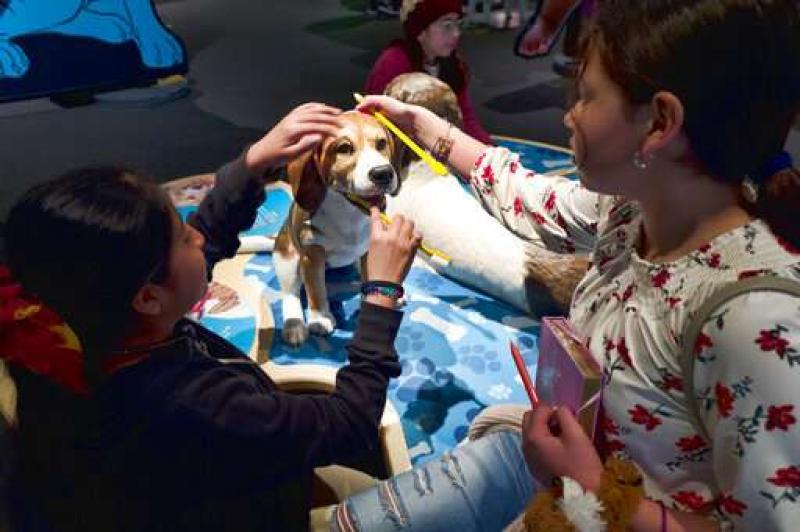California science exhibit explains the dog-human friendship



Did people domesticate dogs or was it the other way around? And why do these two species seem to think so much alike, act so much alike and get along so well?
The California Science Center has spent the past five years sniffing out the answers to those and hundreds of other vexing canine questions. It will begin revealing the conclusions Saturday with an ambitious, if somewhat lighthearted, new exhibition called "Dogs! A Science Tail."
And, yes, real dogs will be there. (Just try hiding contraband from that drug-sniffing dog and see what happens.)
"It's really not about just dogs and science. It's really about how dogs and humans are both social animals. About how dogs and humans have evolved together over thousands of years. And the fact that because we are both social animals , we've learned to work together," said Jeffrey Rudolph, the center's president and a devoted dog lover who worked for years to pull this show together.
As he spoke during a recent pre-opening walkthrough of the exhibit, he paused briefly at what he imagines might be its most popular stop for the pre-teen crowd—a replica of a fire hydrant next to a button that you can push to smell what a dog smells.
"But we just smell pee," Rudolph explained with a laugh. "A dog can tell what dog was there, what time they were there and actually which direction they were going."
It's one of the ways dogs can evaluate how safe the surroundings are. It's also how they manage to mark time without wristwatches or smartphones.
"They have an amazing ability to learn information," continues Rudolph, noting the 300 million sensory receptor sites they carry in their noses far outnumber our 6 million.
For those more interested in mutts like the one sleeping at the foot of their bed, there is also plenty to see, including a small gallery of original dog paintings by legendary American artist Norman Rockwell. They are on loan from "Star Wars" filmmaker George Lucas.
Although "Dogs! A Science Tail" will travel to museums across the country after it closes in Los Angeles early next year, the California Science Center is the only place to see the paintings until Lucas opens his own Museum of Narrative Art down the street in 2021.
Read more at: https://phys.org/news/2019-03-california-science-dog-human-friendship.html#jCp


Related article:
My personal opinion is we mutually domesticated each other
Very interesting story. I think that most scientists say that we domesticated the dog, but I think they were willing participants. But from what I have read, there is no solid evidence of where or when the dog was domesticated.
Here is an interesting article on that:
Oddly enough, the cat we know a lot more about its domestication. Maybe because it's more recent.
I am not 100% Cats are domesticated fully